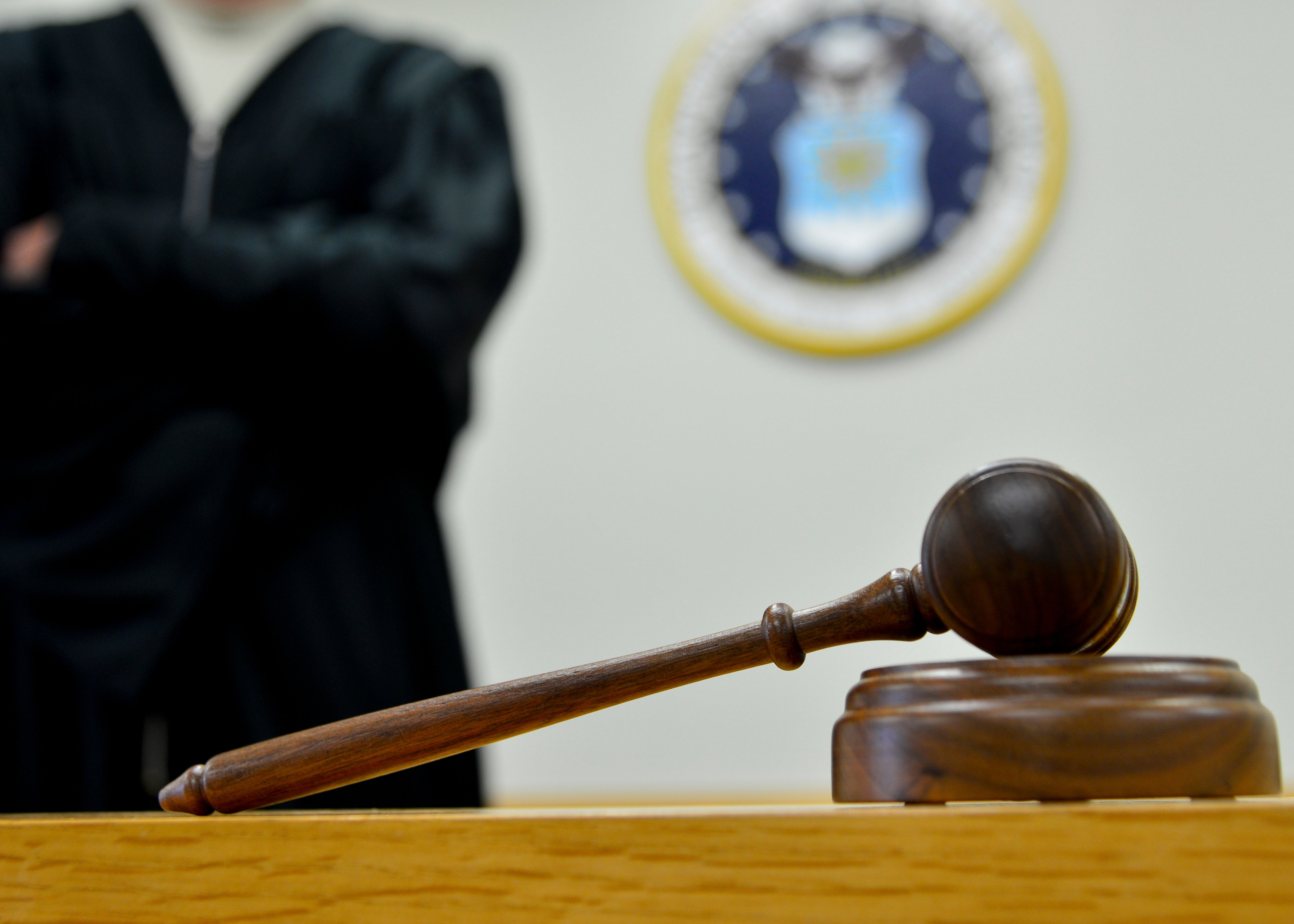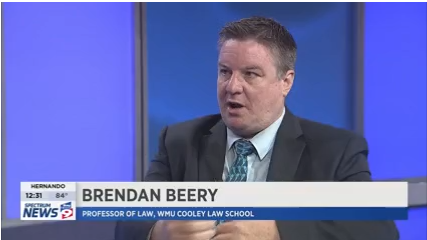
Blog author, Constitutional Law expert and Cooley Professor Brendan Beery, is a summa cum laude graduate of the law school and frequent Constitutional Law legal expert in the media. Along with teaching Con Law, Professor Beery also teaches Criminal Law and Criminal Procedure.
We teach students in law school that criminal punishment and sentencing serve purposes that fit into three categories: utilitarian (meaning useful, as for example deterring the convicted person from committing more crimes and deterring others), rehabilitative (force sobriety, reflection, etc.), and retributive.
The latter function, whose noun form is retributivism, supposedly goes something like this: When a person commits a crime, which by definition is a moral wrong on a scale that requires a societal response, the moral universe goes out of balance. The criminal has made a withdrawal from the universal bank account (of what – karma?) and now, to get things back into balance, he or she is going to have to make a deposit – in the form of the criminal’s suffering, right up to the experience, in capital cases, of creeping death and then oblivion.
The fatal flaw with this view – and this flaw is a rather obvious one, I would say – is that one does not achieve balance by loading more and more onto one side of the scale.
What retributivists seem to want is a kind of return to the moral mean. When the balance has gone negative, we must bring it back to positive. When we’ve moved too far east, we must bring ourselves back west a bit. We all fly on the same spiritual airplane, and if the moral center of gravity slides too far in one direction, we’re all going to wind up at the same metaphysical crash site.
The problem, of course, is that retributivism, which is at its core a response to violence (psychological, moral, or physical), usually proposes more violence. To cage a human being or to pillory and roast or to kill on behalf of the state – these are not means that bring us back from a state of violence toward some state of grace; they are, rather, means that keep moving us farther and farther away from a state of grace and more and more irretrievably toward a state of chaos.
If the solution to up is down and the solution to cold is warmth and the solution to left is right, then how is the moral solution to harm the infliction of more harm – more of the same? If it is balance that we seek, then violence must be met with its opposites: reason, grace, and decency.
Retributivism does not reverse our slide into moral terpitude; it accelerates it, causing us to spiral and nose-dive into madness rather than restoring ourselves to equilibrium.
None of this is to say that violence is never warranted. It surely is, as when it is necessary for the preservation of the self or others against intolerably destructive forces – as when a peaceful nation must fight a defensive war or a peaceful people must throw off authoritarian tyranny. But preservation is a utilitarian goal (it is practical), not a retributivist goal. The occasional necessity of violence doesn’t make violence moral or sane; it just makes it, sometimes, useful.



